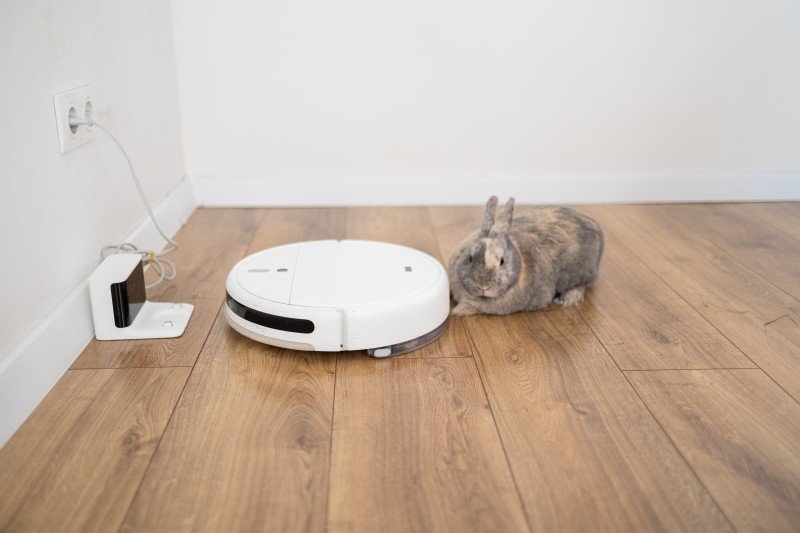Which Robot Vacuum Cleaner Should You Choose? A Comprehensive Guide
In today's busy world, convenience and performance are necessary, and robotic vacuum cleaners have become a popular option for keeping homes tidy without the inconvenience of manual vacuuming. With a myriad of models offered, choosing the best robot vacuum cleaner can be overwhelming. This post aims to supply in-depth insights into what to think about when selecting a robot vacuum cleaner, its functions, and some frequently asked questions.
Key Features to Consider
When assessing different robot vacuum, numerous essential functions can help in making a notified choice. Below are some vital aspects to think about:
1. Suction Power
- The suction power is crucial for getting dirt and particles efficiently. Try to find designs with adjustable suction settings for numerous floor types.
2. Navigation Technology
- Advanced designs make use of laser mapping and cams, allowing them to browse efficiently around challenges and map out spaces for targeted cleaning.
3. Battery Life
- Think about for how long the vacuum can operate on a single charge. A longer battery life makes sure more substantial cleaning sessions before needing to charge.
4. Size and Design
- A compact design permits the robot to clean under furnishings and in hard-to-reach locations. Examine measurements to guarantee it fits in your home design.
5. Dustbin Capacity
- Larger dustbins need less regular emptying. Examine how much particles the model can hold before requiring to be emptied.
6. Smart Features
- Connection alternatives, such as Wi-Fi and app control, enable for remote scheduling and tracking. Voice control capabilities through assistants like Alexa or Google Assistant can also boost use.
7. Rate
- Robot vacuums range from affordable to high-end designs, so consider your cleaning requirements and budget plan when deciding.
8. Client Reviews and Warranty
- Research study user feedback to understand the strengths and weak points of each model. A solid warranty can provide comfort about your purchase.
Contrasts of Popular Robot Vacuum Cleaners
To help in understanding the alternatives readily available, here are some popular robot vacuum cleaners and their functions in the form of a contrast table:
| Model | Suction Power | Battery Life | Navigation Technology | Smart Features | Price Range |
|---|---|---|---|---|---|
| iRobot Roomba i7+ | High | Up to 75 minutes | Smart mapping | App control, voice control | ₤ 600 - ₤ 800 |
| Neato Botvac D7 | Medium | As much as 120 min | Laser-guided | App control, No-Go Lines | ₤ 600 - ₤ 700 |
| Roborock S7 | Extremely High | Approximately 180 min | LiDAR Navigation | App control, mop function | ₤ 500 - ₤ 650 |
| Eufy RoboVac 11S | Low | Up to 100 min | Random navigation | Remote control | ₤ 250 - ₤ 300 |
| Ecovacs Deebot Ozmo T8 | Medium | Approximately 180 min | Smart mapping | App control, voice control | ₤ 600 - ₤ 750 |
Rate ranges and features undergo change, so it's a good idea to check the most recent specifications before making a purchase.
Pros and Cons of Robot Vacuum Cleaners
Pros
- Time-Saving: Robot vacuum can automate day-to-day cleaning jobs, freeing up time for other activities.
- Convenience: Many designs can be managed by means of apps, allowing users to set up cleaning on-the-go.
- Consistency: Regular cleaning sessions can prevent the buildup of dirt and allergens in a home.
- Ease of access: Robot vacuums can reach areas that conventional designs typically can not, such as under furniture.
Cons
- Minimal Capacity: Most robot vacuums have a smaller sized dustbin compared to conventional vacuum, necessitating frequent emptying.
- Rate: High-end designs can be expensive, and budget designs may do not have important functions.
- Surface area Limitations: Some robot vacuums may struggle with certain surface areas, such as high-pile carpets.
- Maintenance: Brushes and filters require regular cleaning and replacement to maintain optimal efficiency.
Often Asked Questions (FAQs)
Q1: How do robot vacuum cleaners work?Robot vacuums are equipped with sensors and brushes that assist them navigate a room while collecting dirt and particles. Their intelligent mapping technology allows them to create a layout of the home, enabling effective cleaning patterns.
Q2: Can robot vacuums tidy multiple surface areas?Yes, many robot vacuum cleaners are created to deal with a variety of surface areas, including wood, tile, and low to medium-pile carpets. Nevertheless, some may be less reliable on high-pile carpets.
Q3: How frequently should I run my robot vacuum?It's usually recommended to run a robot vacuum at least when a week. Nevertheless, homes with pets or large amounts of foot traffic may take advantage of daily cleaning.
Q4: Are robot vacuums worth the investment?If time and benefit are high top priorities, a robot vacuum can be a beneficial investment. It automates an important task, allowing house owners to focus on other tasks.
Q5: How much noise do robot vacuum cleaners make?A lot of robot vacuums operate at a noise level comparable to conventional vacuums however may vary by model. Research study user examines for sound levels if this is an issue.
Choosing the right robot vacuum requires cautious consideration of several factors, including suction power, navigation innovation, and special functions. By weighing robot vacuum with mop and disadvantages while comparing popular designs, customers can find the best suitable for their cleaning needs. As robot vacuum technology continues to develop, their abilities and price are likely to enhance, making them an important addition to the modern-day household.

